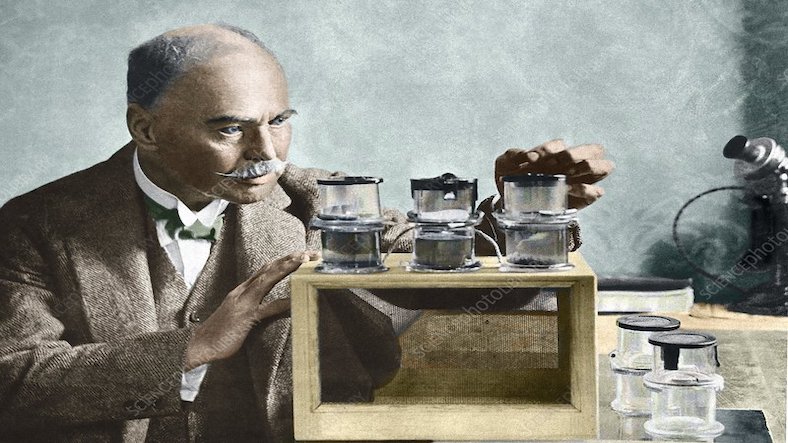Sir Ronald Ross (1857-1932) was a British physician and scientist who is widely recognized for his groundbreaking work on malaria. He was born on May 13, 1857, in Almora, India (then British India). Here are some key aspects of Ronald Ross's life and contributions:
- Malaria Research and Discovery: Ronald Ross is best known for his discovery that mosquitoes are the primary vector for transmitting malaria. In 1897, while working in India, Ross successfully demonstrated that the malaria parasite is transmitted to humans through the bite of infected female mosquitoes. This discovery led to a better understanding of the disease and paved the way for future malaria control efforts.
- Nobel Prize in Physiology or Medicine: In 1902, Ronald Ross was awarded the Nobel Prize in Physiology or Medicine for his discovery of the transmission of malaria. He was the first British Nobel laureate in medicine. His research on malaria significantly contributed to the understanding of the disease and its prevention.
- Contributions to Tropical Medicine: Ross's work on malaria extended beyond his groundbreaking discovery. He made significant contributions to the field of tropical medicine, conducting research on the epidemiology, prevention and treatment of malaria in various parts of the world. His efforts helped shape strategies for combating the disease in malaria-endemic regions.
- Military and Medical Career: Ross had a distinguished career in both the military and medical fields. He served in the Indian Medical Service, where he conducted his research on malaria. He later served in various medical and military positions, including in West Africa, where he continued his studies on tropical diseases.
- Author and Educator: Ross was not only a scientist but also an author and educator. He wrote several books and scientific papers on malaria and related topics, sharing his findings and knowledge with the scientific community. He also served as a professor of tropical medicine at the University of Liverpool, where he trained future generations of researchers and doctors.
- Legacy: Ronald Ross's discoveries and contributions to the field of malaria research have had a lasting impact on public health. His work paved the way for the development of effective malaria control measures, including mosquito control and the use of antimalarial drugs. His research laid the foundation for subsequent advancements in understanding and combating malaria, saving countless lives around the world.
Ronald Ross's pioneering work on malaria transmission and his dedication to tropical medicine have left an enduring legacy. His discoveries and contributions continue to shape our understanding of malaria and inform efforts to combat the disease globally.
Thanks for reading the about this great personality on our peoples blog, for more such great people read our peoples blog articles.










